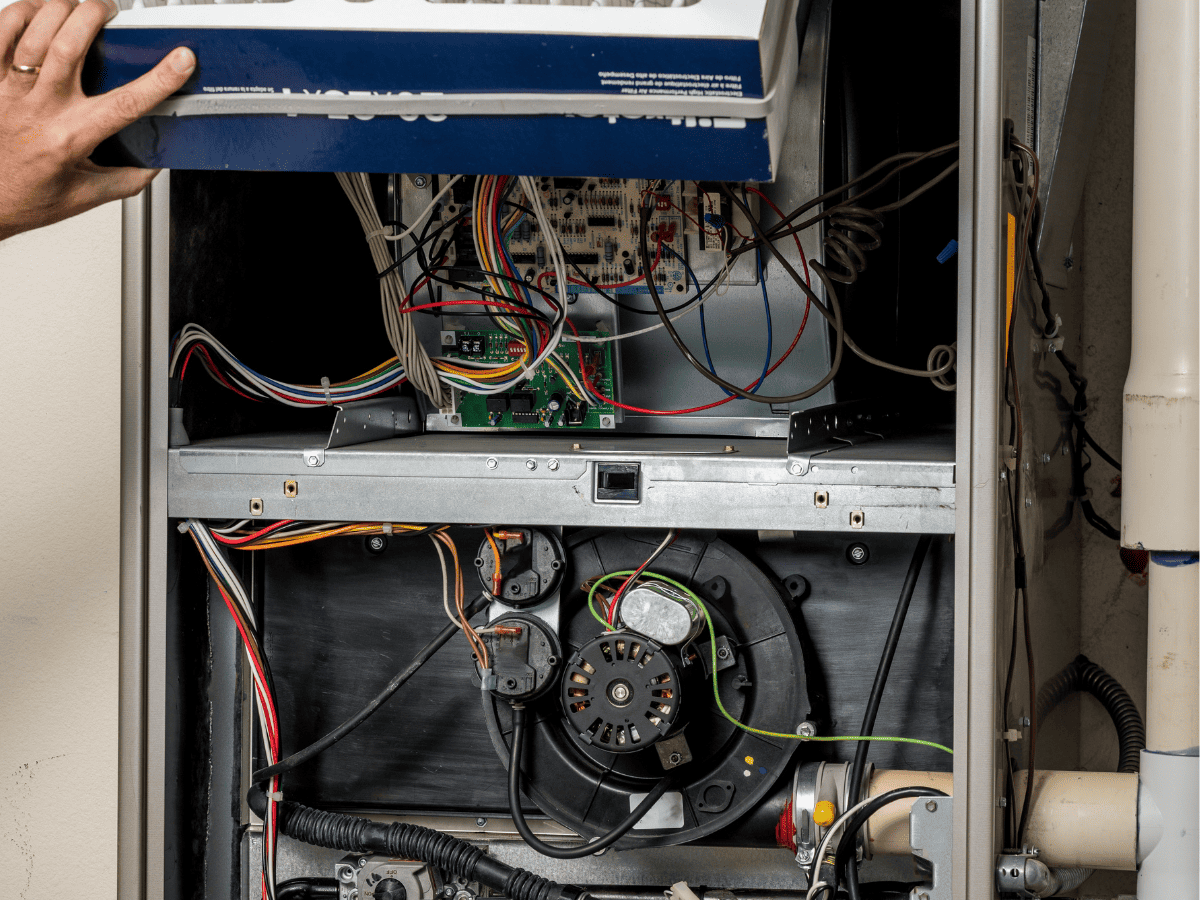There’s nothing more comforting than a warm home thanks to a fully functional furnace. However, when your trusted furnace starts constantly turning on and off, it can be incredibly frustrating and inconvenient.
This process, better known as short cycling, can be a puzzling issue, but it’s one that many homeowners face.
This blog post will explore why your heater keeps turning off and shed light on how an HVAC professional can help rectify it. Remember, letting experts handle your furnace woes is always safer and more effective.
Let’s dive in.
Understanding short cycling: why your furnace turns on and off
Short cycling, in the simplest terms, is when your furnace keeps turning on and off repeatedly. It behaves like an indecisive weather vane, changing its operation mode frequently. Your unit may run for a few minutes before shutting off abruptly and restarting a cycle.
This stop-start routine is far from normal or healthy behavior. In fact, this is a tell-tale sign that your unit is struggling to maintain a consistent heat output. It’s a symptom of an underlying issue that requires swift attention, as it can lead to inefficient heating, increased wear and tear, and higher energy bills.
If you’re noticing this issue, it’s likely time to call an HVAC professional. They can diagnose the root cause of short cycling before suggesting a fix.
The impact of short cycling on your heating system
Short cycling is not only an annoyance, but it also has significant implications for your heating system and home comfort.
Wear and tear
Each time your furnace starts up, it undergoes a substantial amount of stress. When constantly turning on and off, this stress multiplies, leading to rapid components wear and tear. This can significantly reduce the lifespan of your unit, necessitating frequent heating repairs or even a premature replacement.
Inefficient heating
Short cycling prevents your furnace from reaching peak efficiency levels. Your home may not be adequately warmed, leading to inconsistent temperatures across different rooms.
Increased energy bills
As your furnace struggles to maintain a consistent temperature, it uses more energy. Your energy bills could take the brunt of this inefficiency and increase significantly, placing unnecessary strain on your household budget.
Reduced air quality
Your unit does more than heat your home—it also plays an essential role in maintaining indoor air quality. Short cycling, however, may compromise this function, leading to dust accumulation and other harmful air-borne contaminants that can negatively affect family members’ health.
If you notice your furnace keeps shutting off, contacting an HVAC professional is crucial. Professional intervention can help mitigate these impacts, restoring your heating system’s functionality and preserving the comfort of your home.
The job is best left to a professional, as they’ll be able to identify problems like a furnace pressure switch being stuck open.
Why does my heater keep turning off? Common reasons
Now that we understand the impact of short cycling, let’s explore the most common causes behind this phenomenon.
- Dirty or clogged filters
A dirty or blocked air filter is one of the most common causes of short cycling. When the filter is clogged, air cannot flow freely through the system, causing the furnace to overheat and shut down prematurely.
Regular filter cleaning and changing help keep your unit running smoothly and efficiently, extending its lifespan.
- Malfunctioning parts
A furnace has a safety device called a flame sensor. If the sensor is defective or dirty, it might fail to detect the flame and shut the unit off prematurely, causing it to cycle more frequently.
Alternatively, you could be experiencing problems with your furnace ignitor.
- Incorrectly sized furnace
An improperly sized furnace (usually one that’s too large for your home) may heat a room quickly and then shut off, only to turn back on when the temperature drops. This leads to frequent cycles and can take a toll on your system. An HVAC professional can assist in determining the right size of the unit for your home.
- Faulty thermostat
Sometimes, the issue might not be with the furnace itself but with the thermostat. If the thermostat is malfunctioning or improperly placed, it can inaccurately read the home’s temperature, triggering unnecessary cycles.
- Wear and tear
Like any other mechanical system, furnaces are subject to wear and tear, especially if they’re old. A worn-out part causes a furnace that keeps turning on and off.
It’s important to consider how long you’ve had your furnace and when it’s time for a replacement.
Remember, these are just a few potential causes of short cycling. If you notice this issue with your furnace, it may be time to call in the professionals. A technician can accurately identify the problem and provide the necessary solutions.
Ask the pros why your heater keeps turning off
Short cycling is a common issue that can lead to significant problems if left unaddressed. Regular maintenance and prompt, professional intervention are your best defenses against this challenge. Remember, your heating system is integral to your home’s comfort and your family’s well-being.
If your furnace is short cycling or experiencing other issues, don’t hesitate to reach out to Hurliman Heating & Air Conditioning for assistance. Our team of knowledgeable professionals is always standing by and ready to offer expert advice and effective solutions so your home remains warm and welcoming all year long.
Contact us now!





